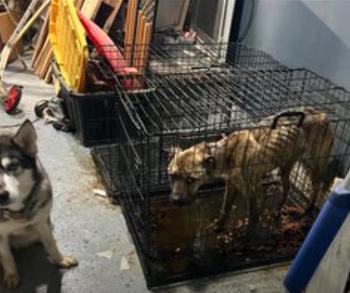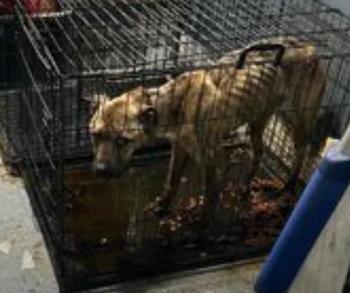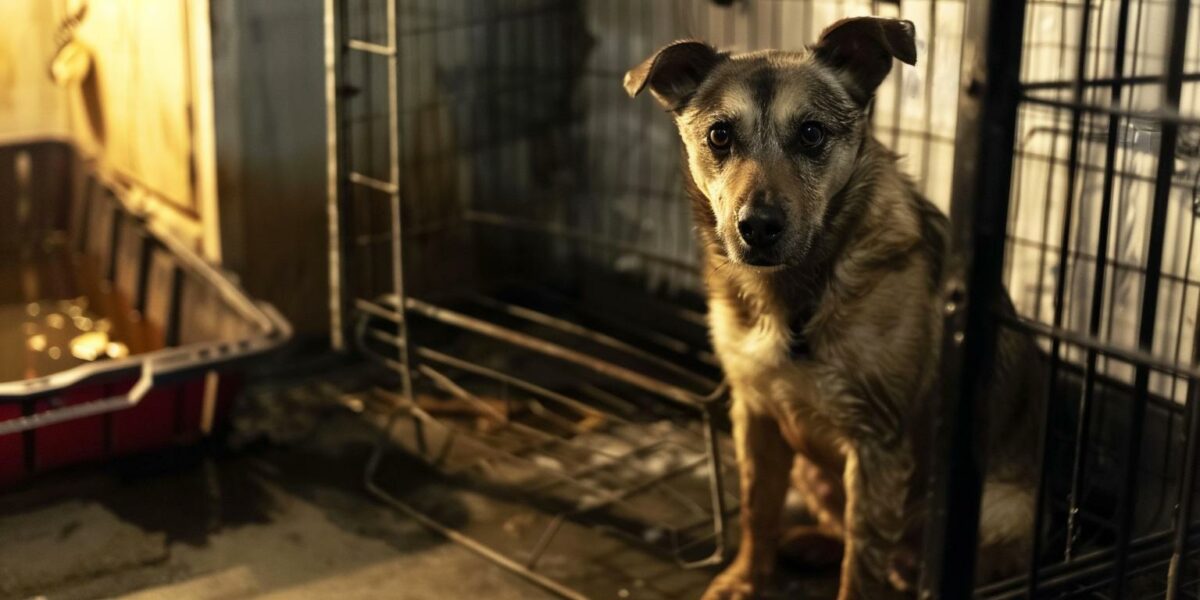The Startling Allegations
In the quiet town of Greenville, a story unfolds that challenges the trust we place in those meant to protect us. Recently, Police Officer Amanda Kaitlyn Ross faced serious accusations of animal cruelty. These charges, stemming from a neglected dog reportedly under her care, have sent ripples through the community. The Greer Police Department, acting on reports of mistreatment, formally charged Officer Ross on April 26, sending shockwaves far beyond the local precinct.
The case not only questions Officer Ross’s actions but also casts a shadow on her continued role within the Greenville Police Department. Despite the charges, she remains on active duty, subject to an internal investigation aimed at uncovering the full extent of her misconduct. This situation raises profound questions about accountability and justice within our law enforcement agencies.
The heart of the matter lies in the condition of the dog involved. Suffering from heartworm disease, a treatable yet severe condition, the dog’s plight highlights a grave oversight. Financial constraints prevented the owners from providing necessary medical care, leading to unnecessary suffering. This aspect of the case spotlights the broader implications of pet ownership and the responsibilities that come with it.
As the community reels from these developments, there is a clamor for justice and a closer examination of the ethical obligations of public servants. The ongoing legal proceedings and internal investigation promise to shed light on the truths of this case, as the public awaits with bated breath for the outcome. The story of this neglected dog and Officer Ross’s charges continues to unfold, each revelation adding layers to our understanding of duty and morality in public service.
Behind the Badge
What happens when those sworn to protect us are the ones breaking the trust? Officer Amanda Kaitlyn Ross’s case is not just about animal cruelty; it is a poignant reminder of the expectations we set for our law enforcement officers. The dog, now at the center of this controversy, suffered due to neglect, raising uncomfortable questions about the personal integrity and professional responsibilities of those in power.
Greenville’s community and its animal lovers are particularly stricken by the severity of the allegations, which suggest a disconnect between Officer Ross’s professional duties and her personal actions. This case serves as a stark example of why rigorous internal oversight is crucial within our police forces. It is essential to ensure that the individuals in these roles can carry out their duties without causing harm or bringing disrepute to their positions.

Moreover, the plight of the dog, a creature unable to voice its own suffering, reminds us of our duty to speak for those who cannot. This incident has sparked a broader dialogue on animal welfare and the moral obligations we hold as a society to protect all living beings from neglect and cruelty, especially from those in positions of power.
The investigation into Officer Ross’s conduct is more than a procedural formality; it is a test of the police department’s ability to police its own. The outcome will significantly impact public trust in law enforcement and might set a precedent for how similar cases are handled in the future. The community’s eyes are watchfully focused on the unfolding events, hoping for a resolution that reaffirms our faith in justice and ethical conduct.
The Legal and Moral Crossroads
The intersection of law and morality is sharply highlighted in the case of Officer Amanda Kaitlyn Ross. Charged with animal cruelty, she stands at a crossroads that questions not only her future but also the ethical landscape of our law enforcement. As the legal proceedings advance, the court of public opinion is already weighing in, drawing lines between right and wrong.
Every development in the courtroom is scrutinized, not just for its legal significance but for its moral implications as well. The community of Greenville, bonded by a collective concern for justice, finds itself dissecting every piece of evidence, every legal argument, for hints of the truth. This process is not just about determining guilt or innocence but about understanding the deeper societal values that are at stake.
Officer Ross has called the charges against her ‘absurd,’ a defense that adds complexity to an already convoluted situation. Her assertion challenges us to consider the possibility of misunderstanding or misjudgment in the rush to find answers. However, the undeniable suffering of the dog, a silent victim in this saga, keeps the public’s sympathy firmly with the pursuit of justice.

The resolution of this case might take time, but it is hoped that it will bring about a necessary reflection on our expectations of those who uphold the law. It will ask of us to reconsider how we handle the delicate balance of compassion and duty in our treatment of animals and our judgment of those who care for them.
A Call for Change
In the wake of the charges against Officer Amanda Kaitlyn Ross, there is a growing call for systemic change. This case is not an isolated incident but a symptom of larger issues within our system of law enforcement and animal welfare. There is a pressing need for stricter regulations and more rigorous training for officers on handling situations involving animals to prevent such incidents in the future.
The community’s response has been overwhelming, with many advocating for not just justice for the neglected dog but for a reevaluation of the policies that allowed such an oversight to occur. It is a call to action for all stakeholders involved—from law enforcement agencies to animal welfare organizations—to ensure that the rights and well-being of animals are not sidelined.
The public’s engagement with this case has been fueled by a combination of empathy for the animal and concern over the integrity of our law enforcement. This engagement is not just about seeking justice but about fostering a culture of accountability where such breaches of trust are less likely to occur.
As we await the final judgment on Officer Ross’s case, let us also commit to advocating for those who cannot advocate for themselves. This incident should serve as a catalyst for change, prompting us to build a more compassionate and just society for all beings, human and non-human alike. The journey towards this ideal is long, but each step, each call for change, is a move in the right direction.


